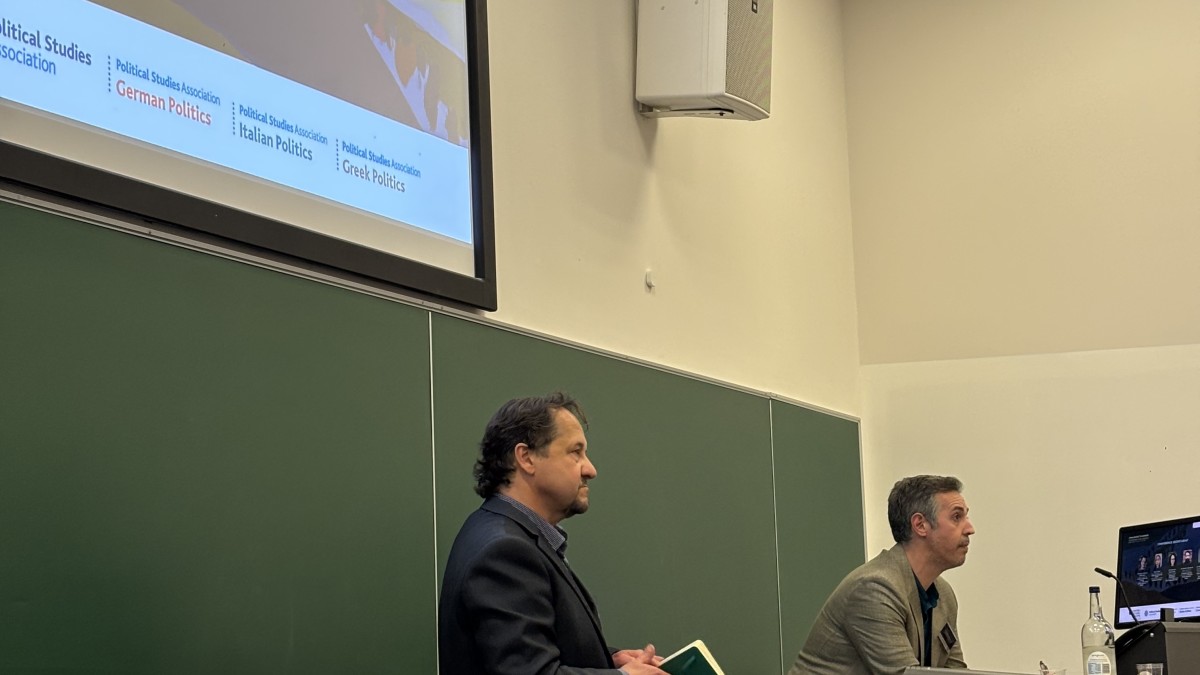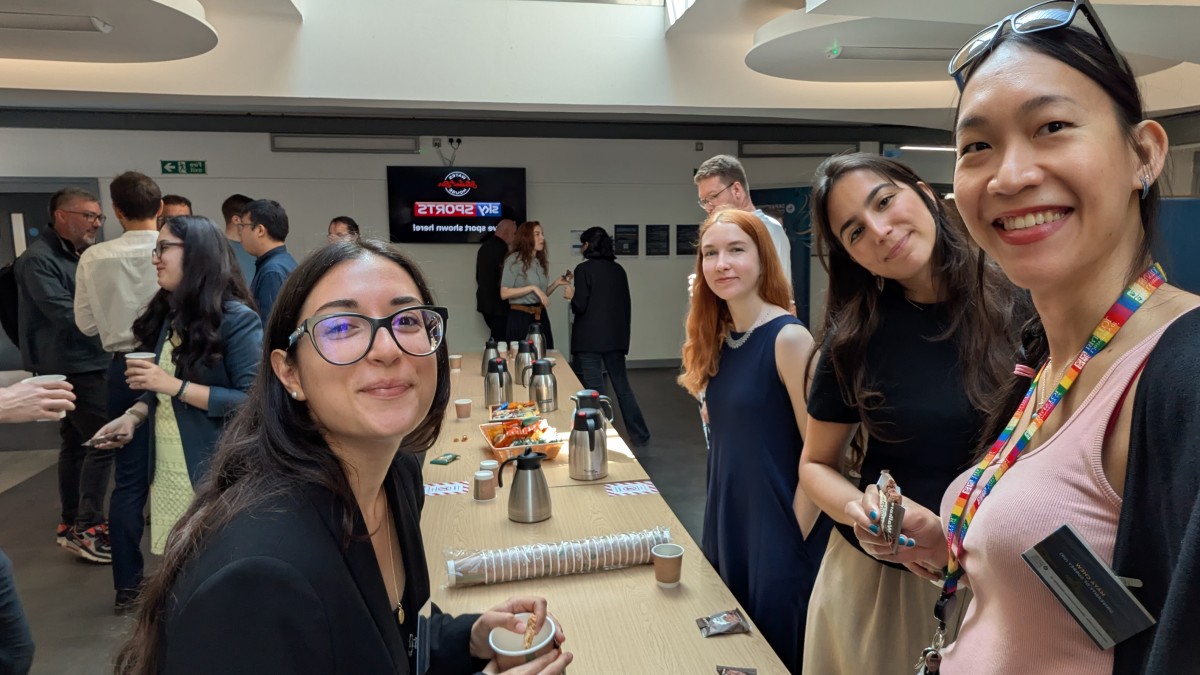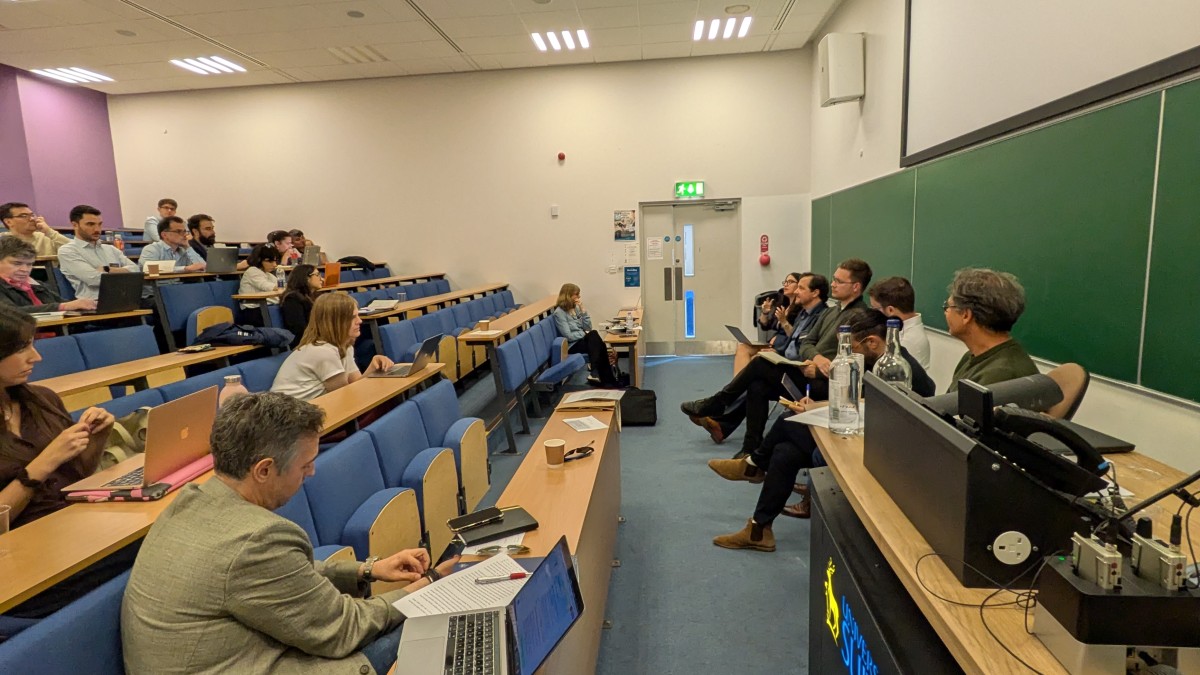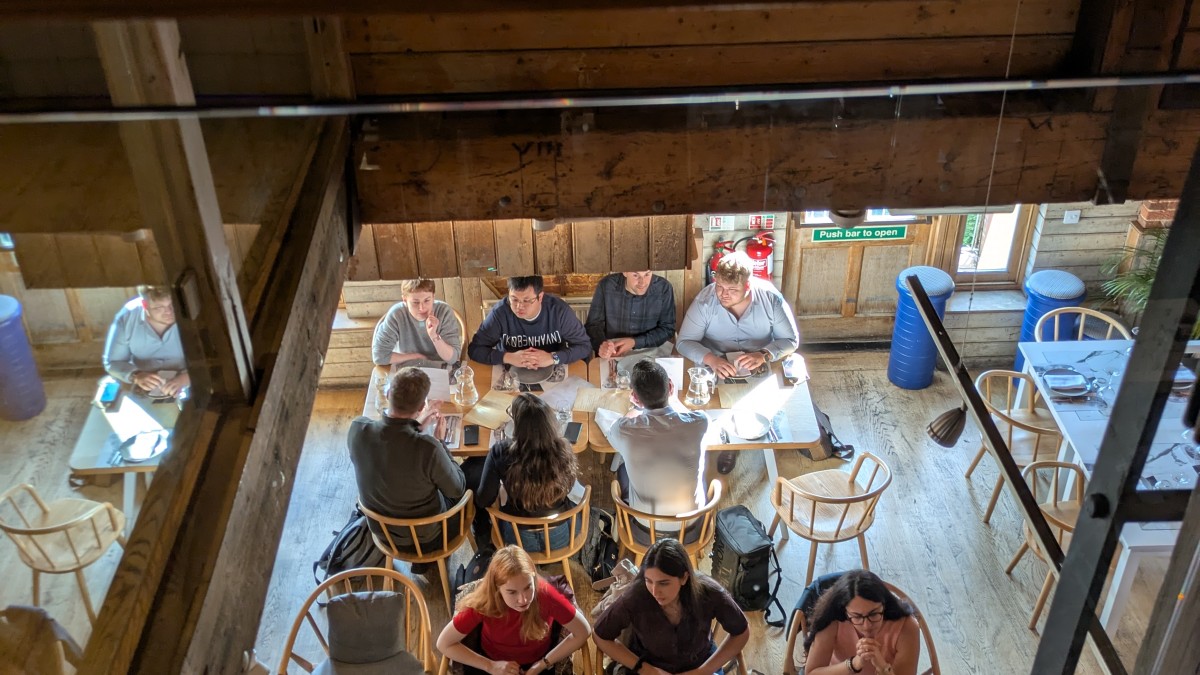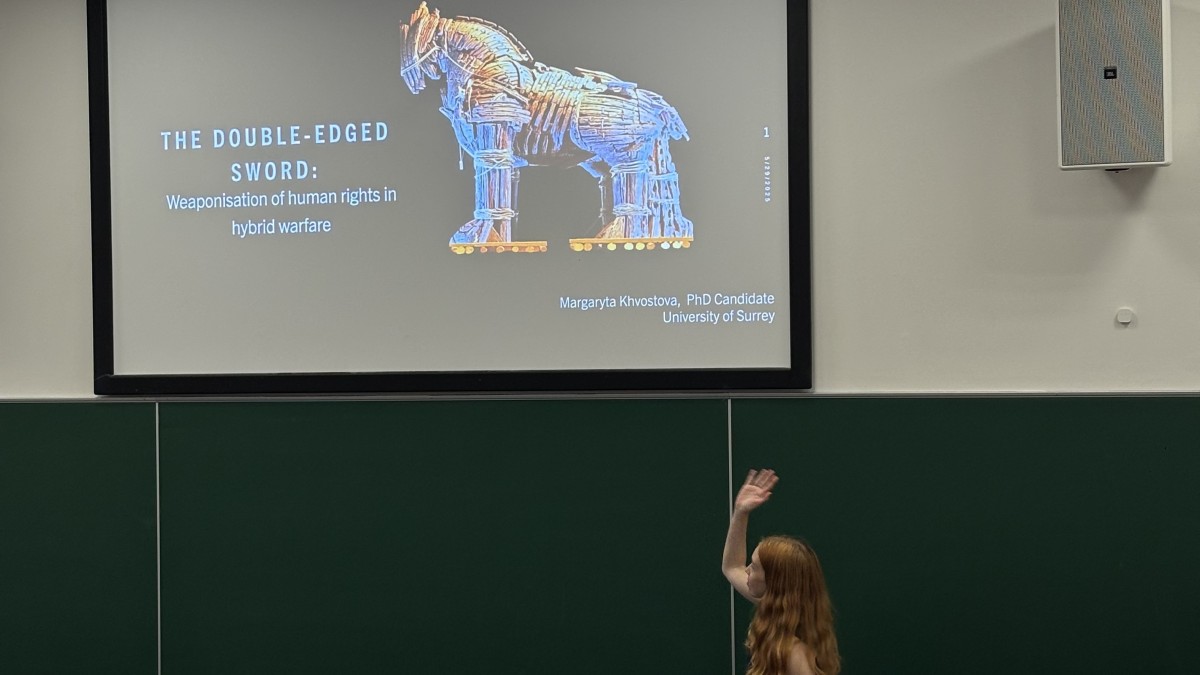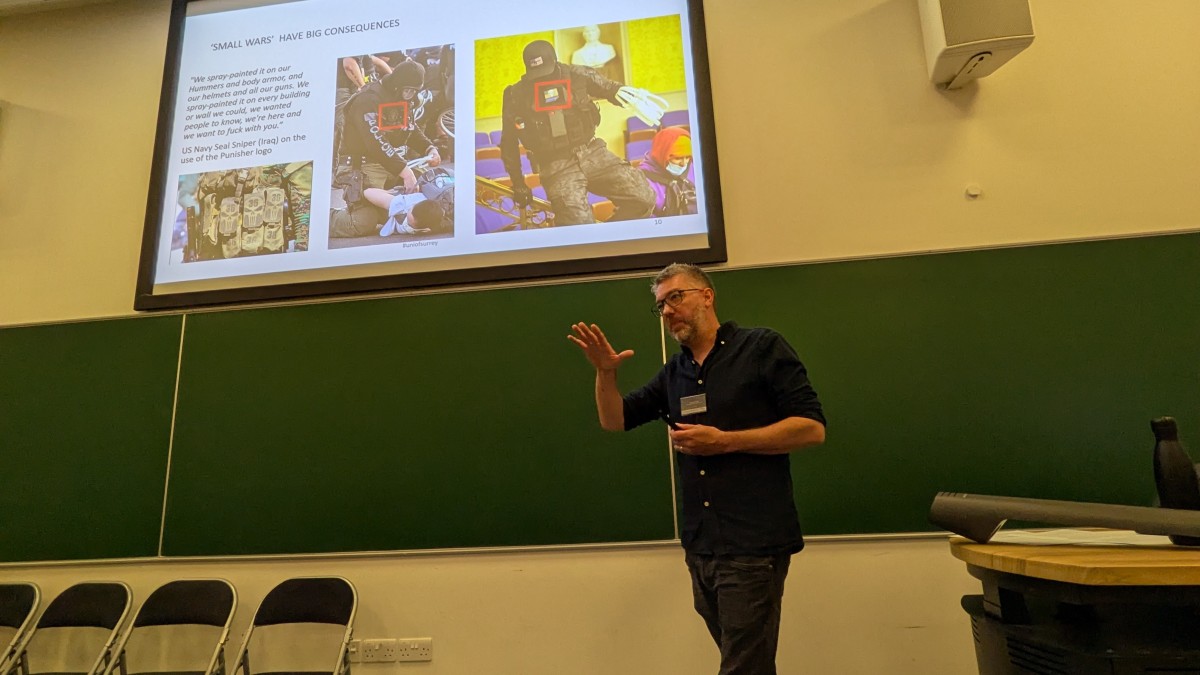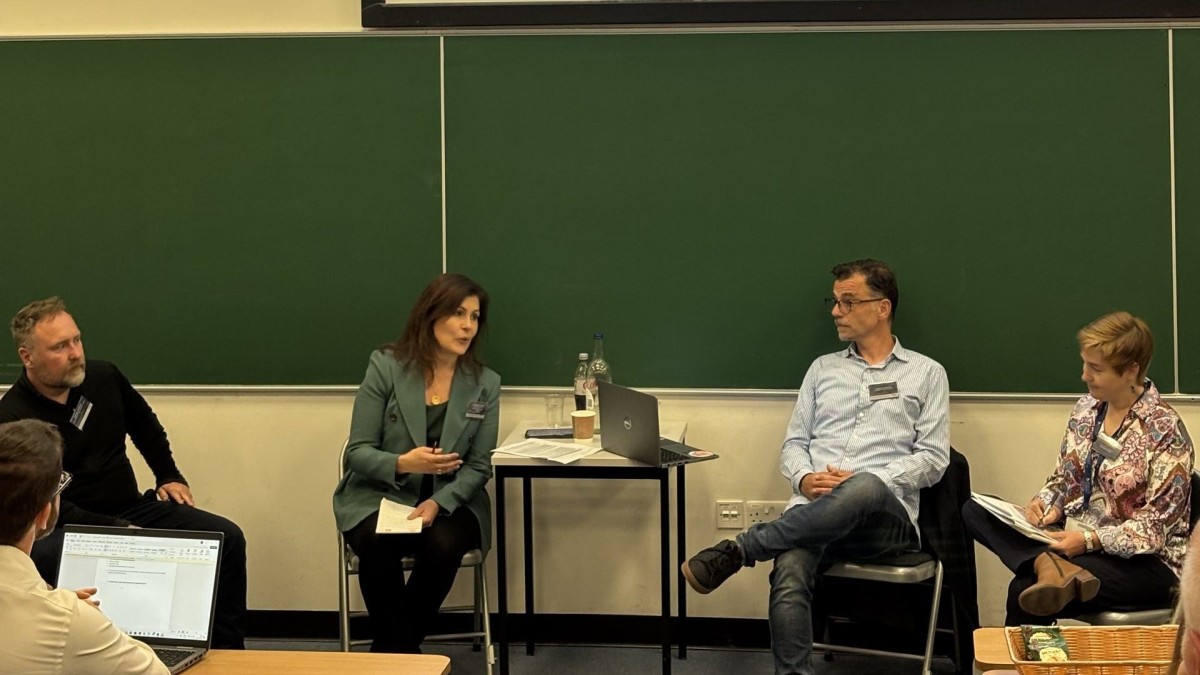CBE's Challenges to Europe: European Challenges Conference
The Centre for Britain and Europe organised a European-wide conference on 28-29 May 2025 with senior academics and ECRs from across the continent - from UK to Italy to Cyprus. The event was co-organised with the PSA German Politics Specialist Group, PSA Greek Politics Specialist Group, and PSA Italian Politics Specialist Group.
DAY ONE: Rapporteur Summary by Dr Nicole Boyce
Introduction
The conference, opened by Daniele Albertazzi (Surrey/CBE), was hosted by the Centre for Britain and Europe (CBE) in collaboration with the German, Italian, and Greek Politics Specialist Groups of the Political Studies Association (PSA), as well as the PSA itself. Albertazzi extended gratitude to these organisations and highlighted the pivotal organisational role of Maya Chew. The contributions of the students in the University of Surrey’s Politics Department were also acknowledged.
The event held particular significance given the ongoing challenges to Europe, notably the war in Ukraine, the rise of China, and the impact of Donald Trump’s presidency on transatlantic relations. The discussion foregrounded topics which would be discussed during the Conference such as populism, security, and the evolving US-European relationship, emphasising the need to understand these challenges in order to craft informed policy responses.
Keynote
Theofanis Exadaktylos (CBE/REDMOS, Head of Politics at Surrey) delivered the keynote address. He examined how Brexit, the war in Ukraine, the COVID-19 pandemic, and challenges to global democracy have catalysed a reconfiguration of power structures in Europe. These crises offer both challenges and opportunities for scholars to interrogate the causes behind political shifts and to reimagine the future of European politics.
Exadaktylos identified four overarching challenges:
- The rise of far-right extremism;
- Pressures on European integration and disintegration;
- Europe’s role as a global actor amid US and Chinese competition;
- Narratives around widening inequalities.
However, he argued these challenges also present opportunities:
- To foster political engagement and counter far-right extremism;
- To build transnational solidarity;
- To rethink how global norms are transferred;
- To address socio-economic inequalities.
He warned of the risks of complacency, with the fading of historical memories of WWII and the normalisation of hate speech, while Brexit’s impact has paradoxically strengthened EU cohesion even as it opened populist spaces within Britain. In this context, Exadaktylos called for a reimagined EU paradigm that balances diversity, peace, security, and resilience, especially as the US appears to retreat from its role as a liberal global actor.
Panel 1: Populism
This panel focused on the rise and mainstreaming of the populist radical right (PRR) and how parties respond to its challenge.
- Matthias Dilling (Trinity College Dublin) and Félix Krawatzek’s research analysed how parties in German state parliaments (2014–2019) responded to the rise of the AfD. They argued that responses were not limited to policy change but also involved discursive strategies—ignoring, opposing, and persuading—without accommodating nativist narratives. Their work offered a deliberative-democratic perspective on how parties can address grievances without adopting extremist frames.
- Ugo Gaudino (Kingston) and Philippe Marlière (UCL) compared the French Rassemblement National (RN) and Italy’s Brothers of Italy (FdI). They argued that mainstreaming depends on historical, institutional, and cultural factors. RN and FdI both sought to normalise their image—softening stances on gender and Islam—while maintaining exclusionary policies. Mainstreaming preceded electoral success for both, but the RN has not held government office unlike the FdI. They concluded that while ideologies have become more elastic, both parties remain distinctly far right.
- Donatella Bonansinga (Southampton) explored “visual de-demonisation” on social media, analysing how Marine Le Pen uses imagery to project legitimacy, good character, and policy breadth. This visual strategy broadens the electorate by rebranding the PRR as more relatable and less radical, especially to women and younger people.
- Christopher Burden (Aston) offered a “queer” theoretical lens on populism. Rejecting binaries, he argued that populism is a performative, fluid, and negotiated identity shaped by audience and context, paralleling gender performativity. His findings highlighted that politicians shift seamlessly between populist and mainstream performances, embodying contradictions as contextually permissible.
- Daniele Albertazzi (Surrey/CBE) challenged the utility of the “far right” label, arguing it obscures crucial distinctions. Drawing on Cas Mudde’s differentiation of “radical” and “extreme” right (the latter being anti-democratic), Albertazzi advocated for binning the “far right” term altogether in favour of clearer analytical categories that acknowledge the ideological foundations of the extreme right, including its embrace of violence and elitist palingenesis.
Panel 2: Secularisation and Migration
This panel addressed how historical narratives, climate change, and policy discourses shape the securitisation of migration in Europe.
- Dimitris Skleparis (Newcastle), with Georgios Karyotis and Andrew McNeill, applied Buzan and Wæver’s macrosecuritisation concept to Greek migration policy. They argued that a “perpetual ingroup victimhood orientation” (PIVO) links collective memory of historical persecution to contemporary migration threats. Their study found that PIVO shapes moral attitudes and exceptional migration policies, urging integration of historical consciousness into securitisation theory and suggesting policy shifts through inclusive narratives.
- Gizen Aksit Ergen (Newcastle) compared migration narratives in RN and AfD manifestos. Both parties securitised migration as a multifaceted threat, but with different emphases: RN focused on cultural identity and exclusion, while AfD blended cultural and economic frames with structured integration. Political sovereignty was a unifying theme across both parties, reflecting national discourses and the evolving post-COVID landscape.
- Leah Owen (Swansea) explored Frontex’s militarisation in response to climate migration, arguing that securitisation processes extend beyond the far right to encompass technocratic and self-radicalising tendencies within Frontex itself. Her findings underscored an ever-expanding mandate and budget, reflecting how the agency frames climate-driven migration as an existential threat to Europe.
- Andrea Scalera (Glasgow) examined Italy’s Italy-Albania Protocol, arguing that securitisation is reinforced through both discursive shifts and practices. The framing of migration as a criminal threat in policy language centralises power and externalises reception, exemplifying the convergence of Copenhagen and Paris School insights on securitisation as both discourse and practice.
Conclusion: Day One
This conference brought together diverse scholarly perspectives on the reconfiguration of European politics in response to crises and populism. Across panels, key themes included the discursive and performative strategies of the radical and extreme right, the elasticity of ideologies in mainstreaming, the role of collective memory in shaping securitisation narratives, and the technocratic self-reinvention of security agencies like Frontex.
The discussions underscored that Europe’s current challenges are simultaneously opportunities for rethinking democratic engagement, transnational solidarity, and inclusive policymaking. They also demonstrated the continued importance of precise theoretical frameworks—such as differentiating “radical” from “extreme” right—and innovative approaches, including queer and visual analyses, in understanding and addressing the evolving political landscape.
DAY TWO: Rapporteur Summary by Hazal Dilay Süslü
The second day of the conference began with a thought-provoking keynote by Dr Nick Kitchen, who opened up a critical discussion on the question: how confident can we be that American decline is real this time? Drawing on earlier moments in US history, even before the Trump presidency, Dr Kitchen reminded us that debates surrounding the decline of American power have long existed. He challenged the audience to reflect on how such narratives are constructed and, more importantly, what is actually meant by “decline”—decline in relation to what, and for whom?
Following this, the first panel of the day, chaired by Dr Dimitris Skleparis from Newcastle University, addressed the multifaceted threats to democracy, human rights, and liberty both within and outside Europe. Margaryta Khvostova from the University of Surrey focused on the concept of hybrid warfare, analysing how hybrid actors exploit the language and frameworks of human rights to delegitimise their opponents. Edo Filz from the Hebrew University explored how resistance to structural social change, particularly immigration, shapes parties’ adoption of exclusionary logics within the welfare state. Filz proposed rethinking the welfare state as a means of contesting social boundaries, rather than reinforcing them. Anna Malyszko from SGH Warsaw introduced a gendered perspective by examining the Polish security discourse in the context of the 2025 presidential campaign. Malyszko discussed how discourses of national security are used to reshape human rights agenda. Finally, Christos Papastylianos from the University of Nicosia offered a legal perspective, drawing on constitutional theory and amendment culture to explore the state of electoral democracy in contemporary liberal regimes.
The second panel of the day, chaired by Dr Matthias Dilling from Swansea University, turned the discussion direction to the consequences of Brexit and the Eurozone crisis. Kira Gartzou-Katsouyanni from the University of Oxford opened the panel by analysing agricultural finance in Greece, and the institutional transition from a statist framework to cooperation and export-oriented production in Greece. Vasiliki Tsagkroni from Leiden University and Georgios Giannakopoulos from City, University of London, explored a more optimistic view of Brexit’s aftermath, suggesting that it may open up alternative pathways for deeper integration elsewhere in Europe. Emanuele Maggioli from the University of Urbino revisited Huntington’s “clash of civilisations” thesis, drawing attention to similarities and differences between the UK and the USSR regarding their imperial pasts, alliances, and EU membership. Lothar Funk from Düsseldorf engaged with the emerging field of geoeconomics, focusing on the growing interplay between economics and politics. The presentation highlighted that EU trade policy is increasingly being shaped by a zero-sum logic, where one actor's gain is perceived as another's loss. The panel concluded with a presentation by Adalgisa Martinelli from Université Libre de Brussels, who opened up a fascinating discussion on the European Commission’s promotion of food sovereignty. She examined the role of civil society organisations not only as democratic actors but also as potential amplifiers of dissent and exclusionary, even anti-EU, narratives within the EU.
The day concluded with a fascinating roundtable discussion on the security of Europe, chaired by the high-profile journalist, newsreader and documentary maker Barbara Serra, who is also a Professor in Practice at the University of Surrey. Professor Amelia Hadfield (Surrey) opened the session by highlighting key forthcoming events such as the NATO summit, and underscored the critical implications of the Trump presidency. She argued that US scepticism towards NATO could provide new strategic opportunities to the EU, potentially positioning the UK in a leading role. Professor Georgios Karyotis (Glasgow) then reflected on the evolution of the EU’s security vision, calling for long-term planning to strengthen its capabilities and ensure a more stable future for the EU. Finally, Dr. Simon Curtis (Surrey) drew attention to the underestimated global influence of China, and emphasised the importance of recognising China’s strategy not only in ideological terms but also through its material and economic expansion.
Concluding the Conference: The organiser, Professor Daniele Albertazzi (Surrey), closed the conference, by drawing together various threads and topics that had been explored and by thanking all participants and members of the audience for their valuable contributions to the proceedings.
